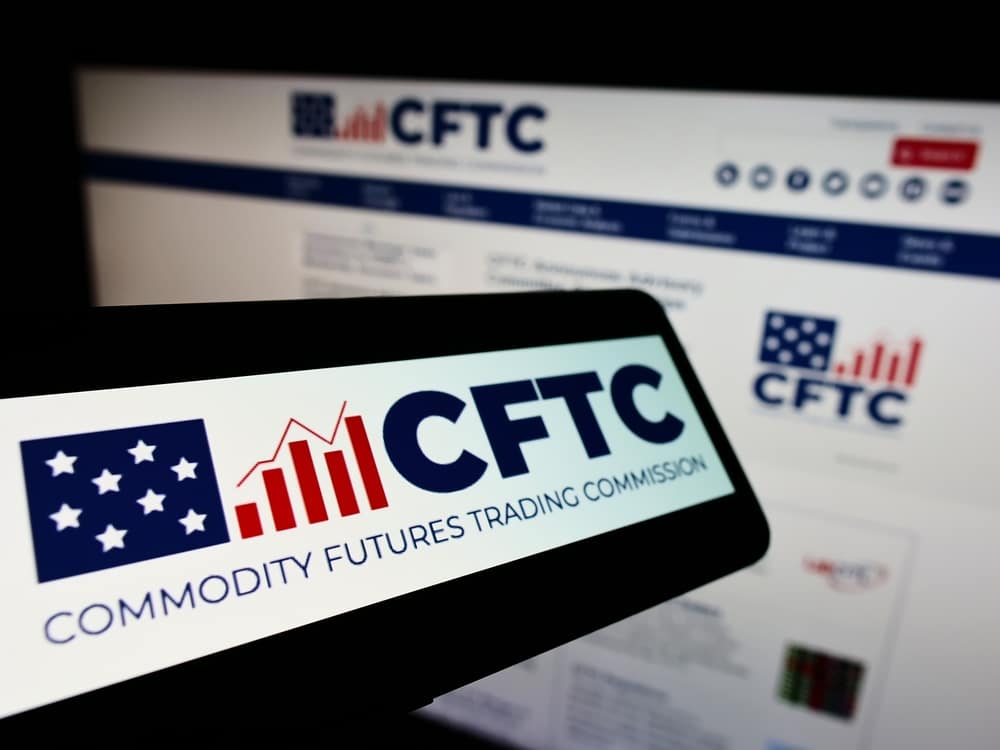
CFTC Charges DeFi Protocols Alleging Breaching AML Rules and Operating Without Permits
Opyn, Deridex, and ZeroEx settled with the CFTC on charges entailing the failure to geoblock users in the United States.
A Thursday order by the United States commodities regulator confirmed filing charges against three decentralized exchanges (DEXs) by enforcing fines and providing ‘cease and desist’ orders.
DeFi protocols ZeroEx (ox), Opyn, and Deridex were charged by the Commodities and Future Trading Commission (CFTC) for the ‘unlawful provision of margined and leveraged retail commodity transactions in digital assets as well as additional charges. The charges mainly involved the failure to acquire the proper approvals for operating in the United States.
Defi Protocols Operated Without Registering With CFTC
Opyn and Deridex were accused of failing to register as a designated contract market (DCM) or swap execution facility (SEF). Additionally, they failed to register as a futures commission merchant(FCM). The exchanges were also accused of failing to block United States users and breaching anti-money laundering regulations under the Bank Secrecy Act.
According to the independent agency, Deridex, ZeroEx, and Opyn should pay respective civil monetary fines of $100000, $200000, and $250000. The three firms were based in Delaware and situated in North Carolina.
A detailed report highlighting the three exchanges’ respective violations was released. The CFTC charged ZeroEx for providing a ‘2:1 leveraged exposure to digital assets, for instance, bitcoin and ether.’ These can only be provided on a ‘registered exchange in a manner conforming to regulations by the CFTC and CEA.
ZeroEx’s developers and Matcha, its front-end operator, via a tweet, claimed the leveraged product comprised less than 0.1% of Matcha’s trading volume since its commencement.
Constructive Talks With Commodity Futures Trading Commission
According to the Matcha team, the ‘implementation of extra processes following constructive talks with the regulatory agency’ is underway. In a press release, the CFTC claimed it ‘acknowledges every respondent’s significant cooperation with the Division of Enforcement’s probe into this issue in the form of a decreased civil monetary fine.’ It is yet to be established whether the exchanges will be permitted to operate in the future.
The official press release by the Enforcement Director, Ian McGinley, revealed that along the way, DeFi operators acquired the notion that illegal transactions become legal following facilitation by smart contracts. He added that this is not the case. Despite the DeFi being intricate, novel, and evolving, the Division of Enforcement will keep developing with it and assertively pursue those running unregistered platforms that permit the trading of digital asset derivatives by U.S. citizens.
Opposition to Ruling by CFTC
At least one CFTC commissioner and other crypto supporters opposed this ruling. Yesterday, Summer K. Mersinger, a CFTC commissioner, wrote a public disagreement statement against the regulator’s actions. He claimed that the enforcement interventions fail to adhere to the Commission’s duty to ensure responsible innovation. Instead, they prevent innovation in the DeFi space and fail to collaborate with participants in the market.
Mersinger also highlighted the Ooki DAO enforcement action by asserting it was a ‘centralized exchange’ contravening regulations by CFTC and the Commodities Exchange Act. Nevertheless, the three presented matters reveal that the protocols were decentralized in operation and conception. In the past, this area has not been the subject of enforcement action by the CFTC.
Blockchain Association’s Chief Policy Officer, Lawyer Jake Chervinsky, cited the court’s view in the Uniswap class action, asserting that by attacking DeFi, the CTFC contravened its values and those of the court. In late August, Katherine Polk Failla, a Judge of the Southern District of New York, established that under national securities regulations, Uniswap’s developers and investors were not responsible for the supposed scam tokens that burned a trader. The judge’s verdict distinguished centralized crypto exchanges from decentralized ones.
Nevertheless, concerns of a regulatory clampdown have been reintroduced by today’s action by the CFTC. A tweet by Gabriel Shapiro, General Counsel at Delphi Labs, showed that one should block the United States when running any form of interface for a DeFi credit protocol.
Editorial credit: T. Schneider / Shutterstock.com




